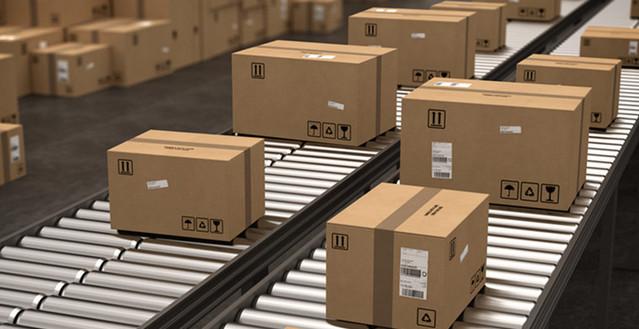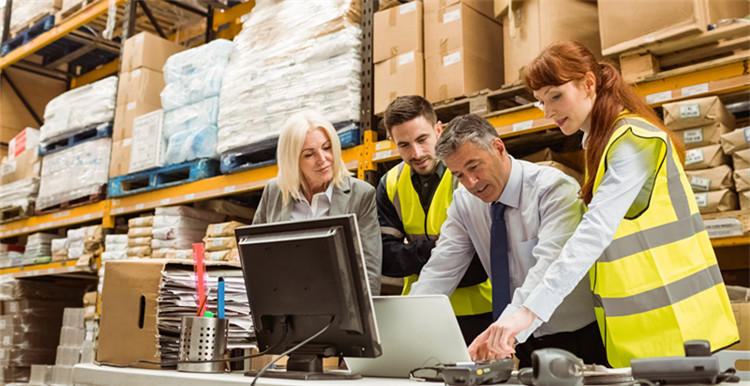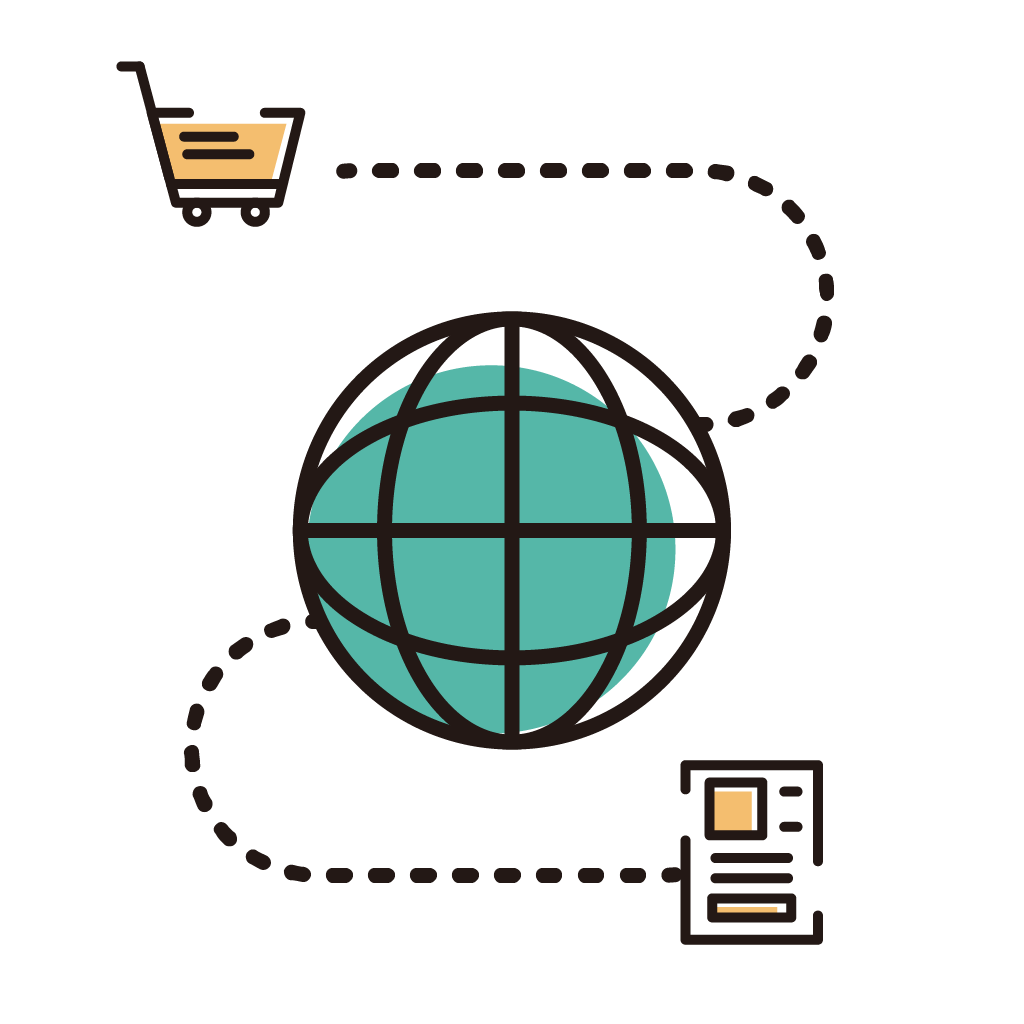To know how to do international logistics well, you must first master the basic knowledge of international logistics. The following basic knowledge is essential and must be remembered.

1>. What is international logistics?
International logistics, also known as global logistics, refers to an international commodity trading or exchange activity that physically moves materials to overcome the spatial and temporal distances between production and consumption when production and consumption are carried out independently in two or more countries, thereby achieving the ultimate goal of international commodity trading, that is, realizing the trade convection conditions that the seller delivers documents, goods and collects payment, and the buyer accepts documents, pays payment and collects goods.
2>. What is "export tax rebate"?
Export tax rebate refers to a measure by which the state uses tax leverage to reward exports. Generally, there are two types: one is the refund of import taxes, that is, when export product enterprises use imported raw materials or semi-finished products to process and export products, they will refund the import taxes they have paid; the other is the refund of paid domestic taxes, that is, when enterprises declare goods for export, they will refund the domestic taxes they have paid for producing the goods.

3>. Conditions for export tax refund
(1) The goods must be within the scope of VAT and consumption tax collection. The scope of VAT and consumption tax collection includes all VAT-taxable goods except tax-free agricultural products purchased directly from agricultural producers, as well as 11 categories of consumer goods subject to consumption tax, such as tobacco, alcohol, and cosmetics.
The reason why this condition must be met is that the tax refund (exemption) of export goods can only be refunded or exempted from the tax paid and tax payable for goods that have been subject to VAT and consumption tax. Goods that have not been subject to VAT and consumption tax (including goods that are tax-free as stipulated by the state) cannot be refunded, in order to fully reflect the principle of "no refund if not levied".
(2) The goods must be declared for export. Export means exiting the country, which includes self-operated export and entrusted export. Distinguishing whether the goods are declared for export is one of the main criteria for determining whether the goods fall within the scope of tax refund (exemption). Unless otherwise specified, all goods sold domestically and not declared for export shall not be regarded as exported goods for tax refund, regardless of whether the exporting enterprise settles in foreign exchange or RMB, and regardless of how the exporting enterprise handles the financial situation.
For goods that are sold domestically and receive foreign exchange, such as goods that are received by hotels and restaurants, etc., because they do not meet the conditions for export, no tax refund (exemption) can be given.
(3) Goods must be treated as export sales in financial terms. Export goods can only be refunded (exempted) from tax after they are treated as export sales in financial terms. In other words, the regulations on export tax refunds (exemptions) only apply to trade-related export goods. For non-trade-related export goods, such as donated gifts, goods purchased by individuals in China and taken out of the country by themselves (except where otherwise provided for), samples, exhibits, mailings, etc., since they are generally not treated as sales in financial terms, they cannot be refunded (exempted) from tax according to current regulations.
(4) The goods must have been paid in foreign exchange and written off. According to current regulations, the export goods for which export enterprises apply for tax refund (exemption) must be goods for which foreign exchange has been paid in foreign exchange and written off by the foreign exchange management department.
The state stipulates that the goods exported by foreign trade enterprises must meet the above four conditions at the same time. When manufacturing enterprises (including manufacturing enterprises with import and export rights, manufacturing enterprises that entrust foreign trade enterprises to act as export agents, and foreign-invested enterprises, the same below) apply for tax refund (exemption) on export goods, they must add one more condition, that is, the goods for which tax refund (exemption) is applied must be the self-produced goods of the manufacturing enterprise or the goods deemed to be self-produced goods in order to apply for tax refund (exemption).
4>. What is "Double Clearance with Tax Included"? What is "Double Clearance without Tax Included"?
Double Clearance with Tax Included is also called Double Clearance with Tax Included to Door, which means Delivered Duty Paid (… named place of destination) = DDP term, which is the term in which the seller bears the greatest responsibility, cost and risk. The DDP term applies to all modes of transportation.
Double Clearance without Tax Included is also called "Delivered Duty Unpaid" (DDU, Delivered Duty Unpaid---named port of destination), which means that the seller is responsible for renting a means of transport, delivering the cleared goods to the designated destination within the specified time, delivering them on the means of transport and bearing the costs and risks before delivery. (Does not include customs duties, taxes and other official fees payable upon import)
5>. What is "Duty Prepaid"?
Duty Prepaid means DDP, which means that the seller in China helps the customer to complete customs clearance and pay taxes at the location specified by the customer. The seller needs to bear all risks and costs of transporting the goods to the designated destination, including the responsibility and risk of handling customs-related procedures, as well as paying handling fees, tariffs, taxes and other fees.
6>. What is "label change"?
Amazon sellers generally have difficulty avoiding having their accounts closed for various reasons, and their products cannot be put on the shelves. Jishu Overseas Warehouse can provide label change, repackaging services, and Amazon consignment services to allow their products to regain value and avoid cargo losses.
7>. What is an "overseas warehouse"?
An overseas warehouse refers to a storage facility built overseas. In cross-border e-commerce, an overseas warehouse refers to a domestic enterprise transporting goods to a target country, building a warehouse locally to store goods, and then responding to local sales orders as soon as possible, sorting, packaging, and delivering goods from the local warehouse in a timely manner.

8>. What are "normal goods"? "Sensitive goods"? "Prohibited goods"?
Normal goods: Normal goods are goods that do not contain sensitive goods or prohibited goods
Sensitive goods: The definition of sensitive goods is relatively simple. Generally speaking, they are goods between normal goods and prohibited goods.
Example:
1. Battery goods. Batteries will affect the magnetic field and electrical signals to a certain extent, and will interfere with aviation safety. They are restricted items for aviation transportation, but they are not prohibited items. They can be transported, but special procedures are required.
2. Liquids, pastes, powders and other unstable items. These items are extremely easy to vaporize during the aviation process. When the container is directly exposed to the sun at sea, it will heat up and cause physical explosion. They are also restricted items for transportation.
3. Various brand-name items and luxury goods. These items are often involved in legal disputes such as infringement. Items with the country of origin written as mike in xx and counterfeit brand names are all legal infringement items.
4. Magnetic items. Magnetic items can easily generate electromagnetic waves during high-speed flight, or their own magnetic field can interfere with magnetic field electronic signals, which are safety threatening items.
5. All kinds of food, medicine, etc. Such items involve biological invasion and require quarantine certificates for international transportation. If they are not quarantined, they may be sensitive goods.
6. CDs, etc., printed materials, films, photos, records, films, tapes, laser discs, computer storage media and other items that are harmful to the political, economic, cultural and moral aspects of the destination country or involve international secrets.
7. Gold, silver, precious artworks, etc. Valuable items are prone to theft, robbery, etc.
Prohibited goods: These are some items that are expressly prohibited from being transported in my country and many other countries. Any involvement in such items is illegal.
1. Various dangerous goods that are explosive, flammable, corrosive, toxic, highly acidic, alkaline and radioactive, such as firearms and ammunition, gunpowder, firecrackers, gasoline, alcohol, kerosene, tung oil, lacquer, matches, pesticides and other chemical products listed in the "Practical Handbook of Chemical Dangerous Goods" published by the Chemical Industry Press;
2. Poisons and psychotropic substances, such as opium, morphine, cocaine (cocaine), etc.; items prohibited from circulation or delivery by national laws, such as arms and weapons, domestic or foreign currencies, etc.
3. Perishable items, various live animals (such as fresh fish, fresh meat, etc.);
4. Items that hinder public health, such as corpses (including incinerated corpses), unnitrated animal skins, unmedicated animal bones, etc.;
5. Reactionary newspapers, books, windows or obscene items, etc.;
6. If the chemical products you send are not included in the "Practical Manual of Chemical Hazards", you must provide an appraisal certificate issued by the first-level chemical product appraisal department on the market to confirm that the relevant items are non-hazardous chemical products before they can be sent. The relevant appraisal department must be responsible for the appraisal results.
Some of the items listed above or items with the above properties are prohibited items. Such items will never be transported, which is an illegal act!
9>. "Volume weight" and "cubic meter" calculation,
Volume weight calculation method:
Length (cm) X width (cm) X height (cm) / 6000 (depending on the situation) = volume weight (kg)
Single piece cubic meter calculation method:
Length (m) X width (m) X height (m) = cubic meter
Ticket calculation
Length (m) X width (m) X height (m) X number of boxes = cubic meter
[Cubic meter is cubic meter, commonly known as "CBM"]
10>. How big are 20-foot flat cabinets, 40-foot flat cabinets, 40-foot high cabinets, and 45-foot high cabinets?
The measured internal dimensions of 20'GP: 5.890m (length) x 2.342m (width) x 2.388m (height), with a load of approximately 28,300kg. The measured internal dimensions of 40'GP: 12.017m (length) x 2.342m (width) x 2.388m (height), with a load of approximately 28,700kg. The measured internal dimensions of 40'HQ: 12.017m (length) x 2.342m (width) x 2.693m (height), with a load of approximately 28,700kg. The measured internal dimensions of 45'HQ: 13.546m (length) x 2.347m (width) x 2.693m (height), with a load of approximately 27,800kg.
11>. What is customs declaration? What is customs declaration by purchase?
Customs declaration refers to the declaration of goods, luggage, mail items, means of transport, etc. by the owner or his agent to the customs when entering or leaving the customs or national border, submitting the required documents and certificates, and requesting the customs to handle the relevant procedures for import and export. my country's customs stipulates the documents and certificates that should be submitted when declaring customs. They include: import and export goods declaration form, import and export goods license, commodity inspection certificate, animal and plant quarantine certificate, food hygiene inspection certificate, bill of lading, bill of lading, waybill, invoice, packing list, etc.
Buying export is actually a factory or SOHO without export rights that buys verification orders from other import and export companies and exports in the name of the company. The "order" purchased by buying export mainly refers to the verification order, but the company that sells export services needs to provide customs declarations, customs declaration letters, packing lists, commercial invoices, export contracts, inspection letters, warehousing letters, etc. that are consistent with the heading of the verification order and stamped with the official seal. After the company that buys the order gets the customs declaration information, it only needs to hand over the entire set of customs declaration information to the customs broker or freight forwarder.
12>. The difference between traditional logistics and international logistics.
Traditional logistics: generally refers to the packaging, transportation, loading and unloading, and warehousing of products after they leave the factory, while modern logistics proposes the concept of logistics systematization or overall logistics and comprehensive logistics management.
International logistics: refers to the physical flow of goods from the supply place of one country (region) to the receiving place of another country (region).























